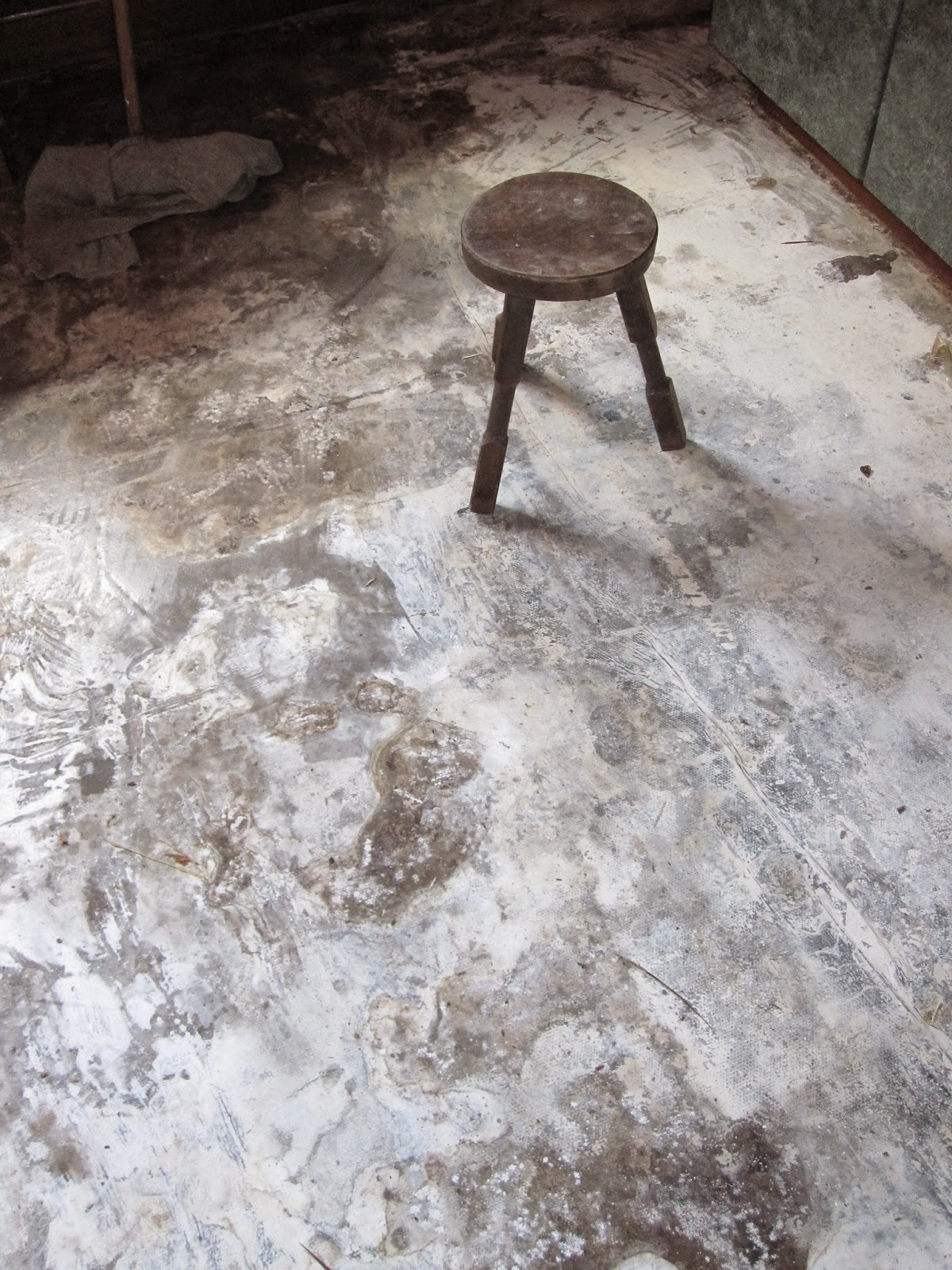The title of this post alludes to Richard Sennett's book of the same name which explores 'The Body and the City in Western Civilization'
Have managed to prepare a white gesso ground on eight new MDF squares 5x300x300mm ready to paint on and will begin soon.
Looking forward to seeing 'Sense and Sensuality. Rubens and his Legacy' at the Bozar over the October break in between bouts of wall scraping.
Ruben's, like Lucien Freud, a more recent figurative painter in the same tradition, makes the analogy between the oleaginous nature of 'skin' on the painted surface of the canvas and human flesh. Despite the counter reformation iconographic rhetoric the real subject in his explosive overblown compositions is the existential drama of human flesh - its birth, growth, maturity and ageing, death and decay - and the power of the painted image to outlive its transient fleshy subject matter.
 |
| 'The Death of Seneca' Peter Paul Rubens. c1615 |
 |
| Lucian Freud, Painter Working, Reflection, 1993. |
Pursuing these analogies further from previous posts between bodies of paint and flesh and flesh and stone in houses and cities it is interesting to see how the various states of growth and decay, destruction, renovation and restoration have occurred in cycles in this old building and the rest of the city. The marks of time have a certain honesty and beauty about them if we can look with a degree of equanimity and without too much desire or aversion at both our own bodies and the bodies of wood, stone, ceramics, paint and plaster that form the outer protective 'skin' we call home.
It will be some time before these surfaces have lime plaster, beeswax and terracotta on them and various nuanced shades of white paint and the natural colour of stone, wood and raw linen to soothe the eye and gladden the heart...........but in the mean time they are a suitable subject for practical meditation in the spirit of the Upajjhatthana Sutta and its five recollections that should be reflected upon frequently
| 1. | I am sure to become old; I cannot avoid ageing. | Jarādhammomhi jaraṃ anatīto.... | |
| 2. | I am sure to become ill; I cannot avoid illness. | Vyādhidhammomhi vyādhiṃ anatīto.... | |
| 3. | I am sure to die; I cannot avoid death. | Maraṇadhammomhi maraṇaṃ anatīto.... | |
| 4. | I must be separated and parted from all that is dear and beloved to me. | Sabbehi me piyehi manāpehi nānābhāvo vinābhāvo.... | |
| 5. | I am the owner of my actions, heir of my actions, actions are the womb (from which I have sprung), actions are my relations, actions are my protection. Whatever actions I do, good or bad, of these I shall become their heir. | Kammassakomhi kammadāyādo kammayoni kammabandhū kammapaṭisaraṇo yaṃ kammaṃ karissāmi kalyāṇaṃ vā pāpakaṃ vā tassa dāyādo bhavissāmī. |







No comments:
Post a Comment